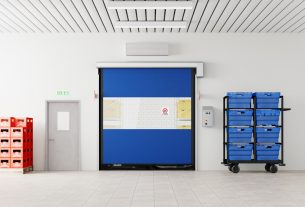Bonsucro—the leading global non-profit uniting the sugarcane sector—highlights its vital role in advancing environmental progress. Through its rigorous Production Standard and collaborative multi-stakeholder platform, Bonsucro works to drive positive transformation across the sugarcane sector.
Why sugarcane matters on World Environment Day:
With the nature and climate crisis accelerating, deforestation rates rising, and the world counting down to COP30—the “Nature COP” in Brazil—the spotlight is on food systems and commodities that shape our planet’s future. Producing sugarcane, a global staple, presents both social and environmental challenges but is also a prime example of a crop that can be grown more sustainably to address some of the issues facing our planet.
While sugarcane can be a resource-intensive crop, when produced responsibly, it holds immense potential – reducing emissions, sequestering carbon and improving soil health. In fact, its benefits align directly with the theme of World Environment Day 2025, #BeatPlasticPollution, which calls for global action to end plastic pollution by promoting sustainable alternatives and circular approaches. When manufactured from sustainably produced sugarcane, bioplastics offer a renewable, plant-based source of raw material, helping to move away from fossil fuel-based plastics.
In addition to bioplastics, sugarcane is also used for food, fuel and energy, but its production has been linked to deforestation, water scarcity, greenhouse gas emissions, and labour rights abuses. Yet, with the right standards, innovation, and collective action, sugarcane can become a model for sustainable agriculture—demonstrating how food systems can be transformed to protect people and the planet, especially as the world looks to COP30 for leadership on World Environment Day.

Bonsucro’s extensive database gathered from over 264 certified mills shows that certified farms lower their environmental footprint across key metrics whilst increasing yields, advancing worker rights and improving operational efficiencies. As the world unites to protect our planet, we are committed to harnessing sugarcane’s potential to build more resilient, climate-positive agricultural systems.
The Path Forward: Sugarcane’s Role in a Sustainable Future
Innovating with Bioplastics
Sugarcane is increasingly recognised for its role in creating sustainable alternatives to conventional plastics. Derivatives such as ethanol, produced from the crop’s molasses and bagasse, are becoming key ingredients for bioplastics—offering a renewable, plant-based solution that reduces reliance on fossil fuels. Bonsucro’s certification ensures that sugarcane used in bioplastics, including polylactic acid (PLA), is sourced sustainably and supports the principles of responsible agriculture. For example, Bonsucro members like Corbion can guarantee that their PLA bioplastics are 100% bio-based and have a significantly lower carbon footprint than traditional plastics, making them a vital tool in the fight against plastic pollution.
Sugarcane as a Climate Solution
Despite its environmental promise, sugarcane production currently generates around 400 million tons of CO₂ equivalent annually, with the majority of emissions stemming from farming and milling. Climate change is already impacting yields, worker health, and supply chain stability. In response, Bonsucro is leading the sector in setting science-based climate targets and providing practical tools to help producers measure and reduce their emissions. This proactive approach is essential for transforming sugarcane into a climate-positive crop and building agricultural systems that are resilient in the face of a changing climate.
The expansion of sugarcane cultivation has, at times, contributed to deforestation in forest frontier countries like Indonesia, threatening critical ecosystems and biodiversity. Bonsucro’s standards help shift production away from sensitive habitats and promote regenerative agricultural practices, ensuring that sugarcane cultivation supports rather than undermines global conservation efforts.
Advancing Water Stewardship
Water management is a critical challenge for sugarcane, as the crop is highly water-intensive and often grown in regions already facing water stress. Unsustainable irrigation practices can lead to water depletion and pollution. However, Bonsucro-certified producers have demonstrated that significant improvements are possible, achieving reductions in water use of up to 42%. These advances are crucial for building climate resilience and ensuring the long-term sustainability of agricultural communities.
Like many agricultural sectors, sugarcane production has faced challenges related to forced and child labour, poor working conditions, and low wages, particularly in developing countries. Bonsucro’s Production Standard addresses these issues by ensuring fair wages and a zero-tolerance policy for forced or child labour. By embedding social justice into environmental action, Bonsucro helps create a more equitable and sustainable sector.
Driving Market Transformation
Accelerating the market uptake of certified, sustainable sugarcane is essential for driving industry-wide transformation. Increased demand for responsibly sourced sugarcane rewards producers who adopt best practices and encourages others to follow suit. As global legislation around climate and biodiversity becomes more stringent, transparent and accountable supply chains are critical for meeting sustainability targets. Bonsucro’s platform and certification system provide the assurance that both producers and consumers need to make informed, responsible choices.
Through collective action, innovation, and a steadfast commitment to high standards, sugarcane is emerging as a model for sustainable agriculture—demonstrating how food systems can be transformed to protect both people and the planet.
As Danielle Morley, CEO of Bonsucro, affirms: “We call on the entire sugarcane sector to step up efforts to protect nature, act on climate, and respect for human rights. We are here to support you as we work together to build a more resilient, sustainable future.”






